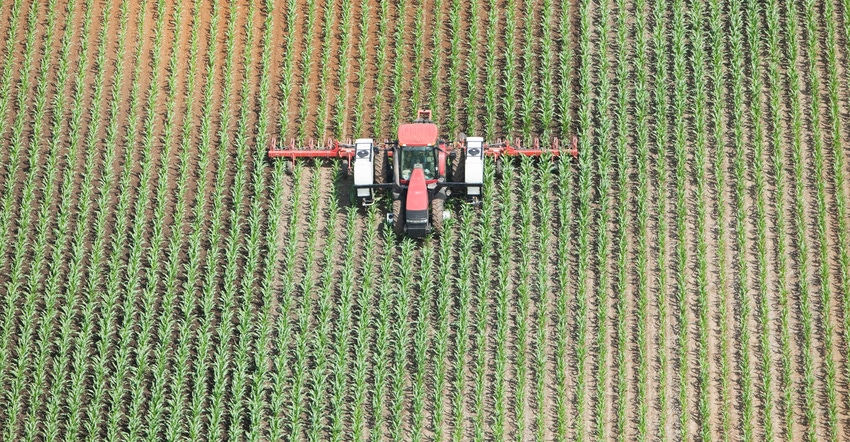October 30, 2018

A new app from Ohio State University is designed to help farmers save both money and the environment.
The Field Application Resource Monitor (FARM) uses advanced weather forecasting to advise farmers on when to apply fertilizers and pesticides so that these inputs aren’t washed away by rain.
According to Aaron Wilson, climate specialist for OSU’s College of Food, Agricultural, and Environmental Sciences (CFAES) and project manager of FARM, it is much more than just a fancy weather app.
“The app allows you to specify the location of your field in high resolution,” says Wilson. This means that the app can actually give specific forecasts for an area as small as 1.5 miles wide — allowing for incredible accuracy and detail.
“It then provides guidance on the best time to apply fertilizers and manures based on the precipitation forecast,” Wilson says.
Beyond the high-resolution forecasts, FARM has another unique feature: historic forecasts. According to Elizabeth Hawkins, an OSU Extension agronomist based in Clinton County, Ohio, FARM’s database of forecasts for specific locations is “its most unique feature.”
“This feature gives farmers the ability to look back at the forecasts that were available when they applied the fertilizer,” says Hawkins. “That information is usually quite hard to find.”
In the event that a forecast is wrong, historical forecasts may provide documentation that farmers were operating under proper procedures and working in accordance with forecasts that were accurate at the time.
For example, the Western Lake Erie Basin Partnership sets laws that prohibit farmers from applying fertilizers or pesticides if the forecast is for more than a 50% chance of rain.
If the forecast calls for a 20% chance of rain and a farmer decides to apply fertilizer only for the rain to fall, the farmer can cite the app conditions for the day.
Detailed emails with precipitation alerts, forecasts
FARM users can also set up accounts and receive detailed emails notifying them of real-time precipitation alerts and forecasts. As the app expands, Wilson anticipates adding phone alerts that will further streamline the process of keeping farmers in the know.
“This equips farmers with the tools to help them make decisions,” Wilson says.
The app can be viewed on most computers and mobile devices. “It’s very accessible. It’s very easy for anyone to use, and it’s very intuitive,” says Hawkins.
The app provides both economic and environmental advantages.
When warned about precipitation that exceeds good management practices, farmers can avoid using fertilizer and pesticides that are doomed to wash away, saving both time and money. Washed-away fertilizer also makes it difficult for farmers to anticipate how much more fertilizer needs to be added.
“If the fertilizer is washed away, that is one input they have lost,” Hawkins says. If farmers don’t know how much fertilizer and pesticide are actually acting upon their crops, then it’s difficult to predict growth.
The app offers a significant environmental benefit as well by helping prevent fertilizers and pesticides from washing into Ohio waterways.
“If you have too much phosphorus washing into rivers, and eventually Lake Erie, you have a greater potential for harmful algal blooms,” Wilson says. “This is detrimental to the waterways farmers depend on.”
It’s no secret that farmers and the environment have a mutual codependence on each other. FARM gives farmers a distinct opportunity to look after the environment in a way that also saves them time and money.
For more information about FARM, visit farm.bpcrc.osu.edu.
Source: OSUE
You May Also Like




